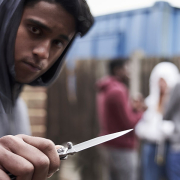The 7/7 London Bombers: Homegrown Suicide Attacks (2005)
On 7 July 2005 (“7/7”), Britain suffered its worst terrorist attack in modern history. Four young British young men: Mohammad Sidique Khan (30), Shehzad Tanweer (22), Hasib Hussain (18), and Germaine Lindsay (19) carried out coordinated suicide bombings on London’s public transport system during the morning rush hour.
At 8:50 AM, three of them detonated rucksack bombs on packed Underground trains nearly simultaneously, and an hour later the fourth bomber exploded his device on a double-decker bus. The blasts wrought carnage: 52 people were killed and over 700 injured across the four attack sites.
All four bombers died in the explosions they caused. The attackers were British-born young men from ordinary families a stark example of “homegrown” extremism. Investigations revealed they had plotted the attacks in retaliation for Britain’s role in the wars in Iraq and Afghanistan, and they had links to al-Qaeda militants abroad.
Mohammad Sidique Khan, a married father and teaching assistant from Yorkshire, was identified as the ringleader of the cell. In a pre-recorded “martyrdom” video released after his death, Khan calmly explained his motives. Speaking in his Yorkshire accent, he declared: “We are at war and I am a soldier. Now you too will taste the reality of this situation.”
He said British civilians were legitimate targets because the UK government was “continuously perpetuating atrocities against my people” in the Muslim world. In the tape aired on Al Jazeera, Khan addressed Western leaders and the public, stating: “Until we feel security, you will be our target. Until you stop the bombing, gassing, imprisonment and torture of my people, we will not stop this fight.”
His message mirrored al-Qaeda’s rhetoric; indeed, al-Qaeda’s Ayman al-Zawahiri appeared in a follow-up video praising the London bombings, indicating the terrorist network’s support or involvement.
Khan’s accomplices: Tanweer a sports science graduate, Hussain a college student, and Lindsay a convert originally from Jamaica similarly saw themselves as “martyrs” avenging Muslims. All had travelled to Pakistan for terrorist training months before the attack, linking up with jihadist handlers.
The 7/7 attacks traumatised London eerily occurring just a day after the city won its bid to host the Olympics and prompted a nationwide re-examination of integration and radicalisation.
These bombers had been born and raised in Britain, yet embraced violent Islamist ideology to the point of killing their fellow citizens. A government inquiry later concluded that no intelligence agency had forewarning of the specific plot though two of the men had appeared on the periphery of earlier investigations.
The attacks stand as a grim watershed moment. They were the deadliest terror strikes on UK soil since World War II, and until the Manchester Arena bombing in 2017, the London bombings of 7/7 remained the country’s worst terrorism incident. The legacy of 7/7 is visible in today’s counterterrorism policies from enhanced surveillance powers to community-outreach programs all aimed at preventing such homegrown extremism from erupting again.




